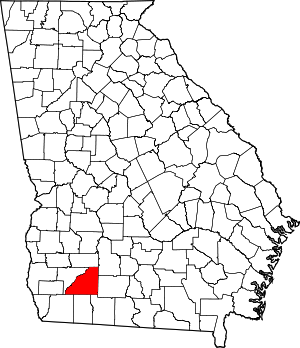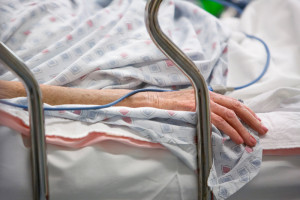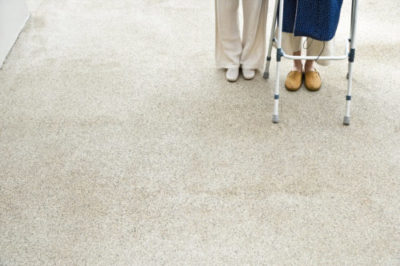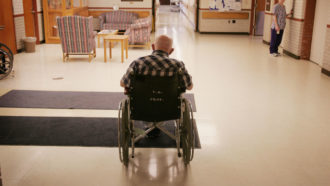Gov. Brian Kemp is sending National Guard troops to a South Georgia nursing home to help personnel contain an outbreak of COVID-19, as part of a state effort to fight the disease in long-term care facilities.
The new coronavirus has hit several nursing homes and assisted-living facilities in the state.
Kemp’s office said Tuesday that 20 soldiers are heading to Pelham, in Mitchell County. They will be assisting at Pelham Parkway Nursing Home, which has five confirmed coronavirus cases, to examine sanitation methods, train staff on infectious disease control measures, and thoroughly clean the facility.

The elderly and people with chronic health conditions are especially vulnerable to COVID-19, health officials say. That’s why the virus poses a huge threat to long-term care facilities.
More than 100 Guardsmen will be deployed to any long-term care facilities with COVID-19 cases, Kemp’s office said.
Georgia health officials, when reporting the coronavirus toll statewide, do not specify numbers for any category of health care facility.
On Tuesday, though, the state reported 34 coronavirus cases, and one death, in Mitchell County, as of 7 p.m. It’s ranked 83rd among Georgia’s 159 Georgia counties in overall population, but it’s 23rd in number of cases.
Overall, the state’s total COVID-19 cases surged by more than 1,000 in one day to reach 4,117, with 125 deaths. The most deaths among counties are in Dougherty, where Phoebe Putney Memorial Hospital has reported that 27 of its patients have died from the disease.
Among long-term care facilities in Georgia:
** A resident at a nursing home in Albany run by PruittHealth recently died of COVID-19.
** A Rome nursing home has had 11 residents test positive for the disease, according to the Rome News-Tribune.
** Greenwood Place Marietta, an assisted-living facility, has had seven confirmed cases of COVID-19.

** Sterling Estates East Cobb, another assisted-living facility in Atlanta’s northwest suburbs, announced that one resident tested positive for COVID-19, and is now in stable condition after being hospitalized.
** Jesse Marinko, chief executive officer of Phoenix Senior Living, said in a statement that a female resident of the company’s Canton assisted-living facility, who had recently tested positive for COVID-19, has died.
According to the company, the woman had been quarantined in the facility’s Memory Care wing. “Our hearts are heavy and we remain unwavering in our commitment to protect our residents and employees from COVID-19,” Marinko said in a statement.
John D. Archbold Memorial Hospital in Thomasville told Georgia Health News that it has treated some Pelham nursing home patients, as well as individuals from area assisted-living facilities.
‘The biggest nightmare’
Cases at long-term care facilities have surfaced in media reports as the disease has spread in Georgia.
“It’s the biggest nightmare for us out there in the aging network,’’ said Kathy Floyd, executive director of the Georgia Council on Aging. She cited the Kirkland, Wash., nursing home outbreak that led to the deaths of roughly three dozen people.

The 20 soldiers going to Pelham have been deployed for training, and “for future missions, only four or five soldiers will deploy to a specific facility,’’ the Governor’s Office said.
“Georgia’s top priority is increasing health care capacity to protect vulnerable Georgians, especially those residing in long-term care facilities,” said Kemp in a statement. “If we can keep these populations as healthy as possible, we will be able to conserve precious medical supplies and hospital bed space in the coming days and weeks.”
The Georgia Health Care Association, which represents long-term care facilities, said Tuesday that it has been working with the Kemp administration, the Georgia National Guard, the Georgia Emergency Management Agency and Public Health on plans to deploy Guardsmen where there are cases of COVID-19.
“This support is critical, as it will help to supplement staffing and infection prevention efforts,’’ said Devon Barill, a spokeswoman for GHCA. “Such assistance is especially needed as a large number of center staff across the state are being required to self-quarantine until testing for the virus can be completed.’’
“We are dedicated to supporting the long-term care community as they work to battle the spread of the virus and stand ready to support those centers with confirmed cases in any way we can,’’ Barill added.
Like many hospitals, long-term care facilities have strict visitation practices amid the pandemic.
Dr. Tom Fausett, medical director of Southwell Health and Rehabilitation in Adel, told GHN that the nursing home is basically under a lockdown, even though it has had no COVID-19 cases so far.
“There are no visitors, with very, very extreme exceptions,’’ such as for a resident in hospice who is dying, he said. “Even then, they [the visitors] would be escorted in and out and have to have PPE,’’ protective gear to prevent transmission of infection.

Kemp has said that medical supplies are being directed as needed to long-term care facilities, as well as to hospitals. He has ordered people in nursing homes and other long-term care facilities to isolate, quarantine or shelter in place, along with other medically fragile individuals.
The state’s long-term care ombudsman, Melanie McNeil, said “it’s hard to get reliable information about [coronavirus] cases in facilities.’’
Ombudsman representatives, under federal guidance, are not physically entering facilities, but are checking by phone how the centers and their residents are doing, McNeil said.
“Some facilities have said they haven’t had access to [COVID-19] testing,” she said.
In many facilities, McNeil said, “staff are scared, and they are really tired.’’ Having personnel from the Guard help them with infection control “can be a good thing,’’ she said.
Max Blau contributed to this report

